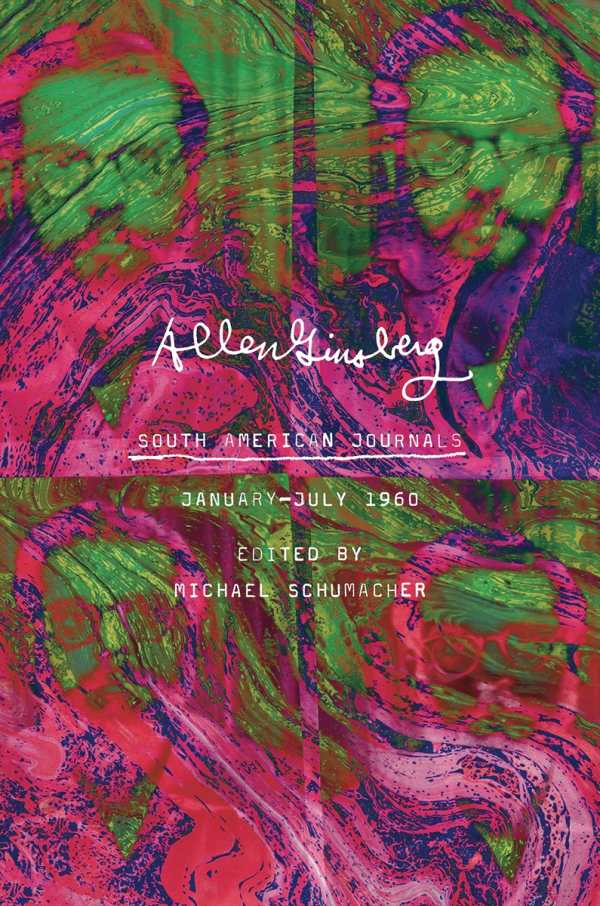
South American Journals
January-July 1960
Allen Ginsberg’s intimate and passionate South American Journals ranges from sublime and spiritual to earthy and grungy and reflects the angst of his life and times.
Ginsberg hooked up with other Beat Generation writers while attending Columbia University and had hopes of becoming a major poet. An auditory hallucination, believed to be the voice of William Blake, commanded him to take his poetic aspirations seriously, motivating his quest to “crack the code” to expanded consciousness through experimentation with drugs.
Invited to participate in an international conference in Peru, he recalls heading to South America on a mission of his own. His first attempt with ayahuasca proves disastrous, and he finds himself adrift in a foreign land—depressed, lonely, and feeling that he had missed out on whatever life was supposed to be. In “Siesta in Chile,” he reflects “Rawbone face, I’d love myself / If I were not me…”
Ginsberg’s travels, like his homoeroticism and experimentation with drugs, were pivotal in his development, and his journals became the grist for his prose poems, many characterized by idiomatic language and the rhythms of everyday speech. Entries reveal his sensitivity (often drug-enhanced) and observations, including his horror at living on a planet where sentient beings eat each other. His imagery is painful and bold: “God will hear our prayers when we hear the prayers and know the grief of insects,” he writes. “Our prayers to god sound like the crackle of live lobsters in the sink.” His entries end with him grappling with the inevitability of death.
Edited with care to preserve Ginsberg’s idiosyncrasies, South American Journals features heightened spiritual longing and despair. It is essential to understanding Ginsberg, both as a pivotal poet and as a man.
Reviewed by
Kristine Morris
Disclosure: This article is not an endorsement, but a review. The publisher of this book provided free copies of the book to have their book reviewed by a professional reviewer. No fee was paid by the publisher for this review. Foreword Reviews only recommends books that we love. Foreword Magazine, Inc. is disclosing this in accordance with the Federal Trade Commission’s 16 CFR, Part 255.
